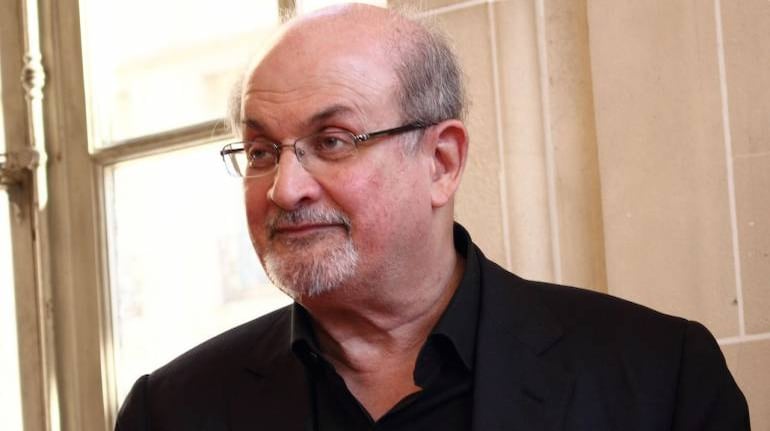



In an essay from Languages of Truth, Salman Rushdie’s new collection of non-fiction, he recalls the time he started writing Midnight’s Children. He began in the third person, “and to my growing frustration it felt somehow inert.” Then one day he allowed Saleem, the main character, to narrate the novel himself.
The results were magical. “What came out of me, somehow, was what I at once recognized as the best page I had ever written, in a voice that was not my own and yet gave me voice.” It famously captured “the polyglot hubbub of the Indian street”.
In another piece, Rushdie writes of Philip Roth’s Portnoy’s Complaint. This was “that supercharged shriek of need, pain, and desire, that voice of which Roth said that, for the first time, he ‘let it rip,’ had never been heard before and still, all these years later, retains all its power.”
That’s the strength of a distinctive voice in fiction. Plot and character are all very well, but the discovery of an individual style of narration makes all the difference. In other words, it’s not what you say, it’s how you say it.
Voice and style are often used interchangeably, although some say that style is a broader concept, referring to all the linguistic devices a writer employs. Either way, it’s how the sentences sound on the page that has an effect on the reader. Freshness and authenticity are key elements. To read Kurt Vonnegut or William Faulkner, for example, is to feel that no-one has said such things in this manner before.
As Al Alvarez puts it in The Writer’s Voice, this can sound as though the voice “is speaking directly to you, communing with you in private, right in your ear, and in its own distinctive way.” Michael Chabon says that what he has responded to his whole life in fiction is “a strong, identifiable, interesting, intelligent voice telling a story.”
Finding such a voice is one of the most important things a writer can do. For a lucky few, it arrives fully-formed from the start; more often, it takes perseverance and experience to unlock the door. Roth wrote two novels under the influence of Henry James before he unleashed Portnoy’s Complaint. The early novels of Saul Bellow were also in a different register, after which came the torrent of The Adventures of Augie March.
A novel needn’t have a first-person narrator to have an individual voice. Someone is always telling the story, be it from an omniscient or personal point of view. Look at the ironies of Jane Austen, the exaggerations of Charles Dickens and the ornateness of Nabokov, to give a few examples. (The same can hold good for non-fiction: think of the social commentaries of Tom Wolfe, the essays of Jia Tolentino, the reviews of Patricia Lockwood.)
It’s not surprising that many writers are greatly influenced by other authorial voices. Ernest Hemingway is an obvious example. He called his pared-down style the “iceberg theory” of writing: show the tip, and keep the larger mass under the surface. Everything inessential was ruthlessly eliminated, with simple vocabulary, plain sentences and an absence of metaphors.
A generation of writers fell under the spell of this spare tone, notably Raymond Carver. (Though it turned out that editor Gordon Lish had a lot to do with it.) Such characteristic voices also lend themselves to parody. From E.B. White to Scott Fitzgerald, many lampooned Hemingway, and there was even an International Imitation Hemingway Competition better known as the Bad Hemingway Contest.
Another voice with a lasting echo is that of the Austrian writer Thomas Bernhard, which couldn’t be more unlike Hemingway if he tried. His novels are full of massive paragraphs, musical repetitions, and elongated sentences. As Dustin Illingworth has recently written, “Bernhardian style overwhelms in its speed, its pretenses to logic, its qualifications and counter-qualifications, its absolutism.”
Among those who have been influenced by him, says Illingworth, are W.G. Sebald and László Krasznahorkai. In addition, many of Geoff Dyer’s essays owe him an obvious debt, as do at least two novels published in recent months, Dead Souls by Sam Riviere and The Appointment by Katharina Volckmer.
Sometimes, writers combine two or more styles to come up with their own. In his The Sound on the Page, Ben Yagoda quotes Joseph Heller: “What I got from Celine is the slangy use of prose and the continuity that is relaxed and vague rather than precise and motivated; from Nabokov’s Laughter in the Dark, the flippant approach to situations that were filled with anguish and grief and tragedy.” Celine was an early influence on Roth, too, despite the former’s offensive anti-Semitism.
How, then, should one think of the writing advice famously advocated by Strunk and White to always use a plain and simple style? With fiction, this has clear advantages such as clarity, not to mention brevity. However, such a style is itself a choice that the writer makes among many others. It could be apt, or it could be bland. George Orwell’s concept of prose as a windowpane is just that: a concept. All language is a filter.
It can be helpful to think of a memorable writing voice as being like a memorable piece of music, with tempo, timing, and texture. As Virginia Woolf said: “Style is a very simple matter; it is all rhythm. Once you get that, you can’t use the wrong words.” Duke Ellington and Irving Mills were pithier: “It don’t mean a thing if it ain’t got that swing.”
Discover the latest Business News, Sensex, and Nifty updates. Obtain Personal Finance insights, tax queries, and expert opinions on Moneycontrol or download the Moneycontrol App to stay updated!